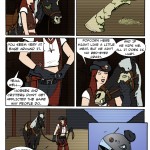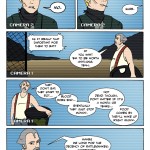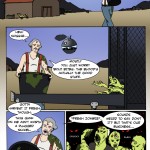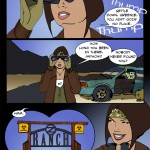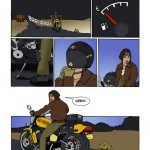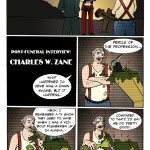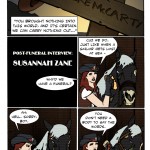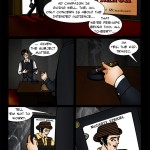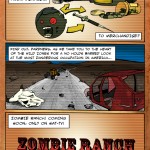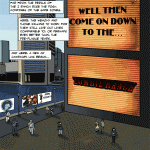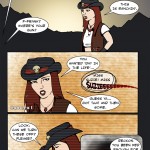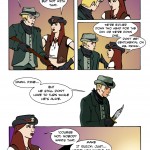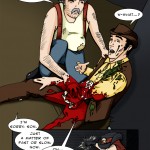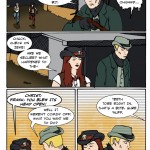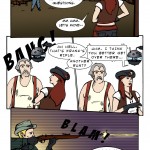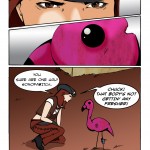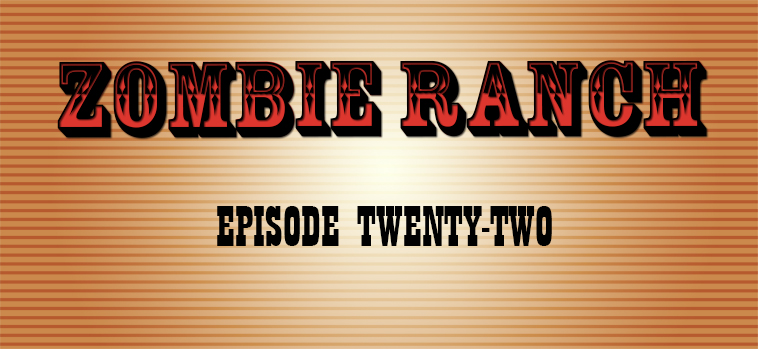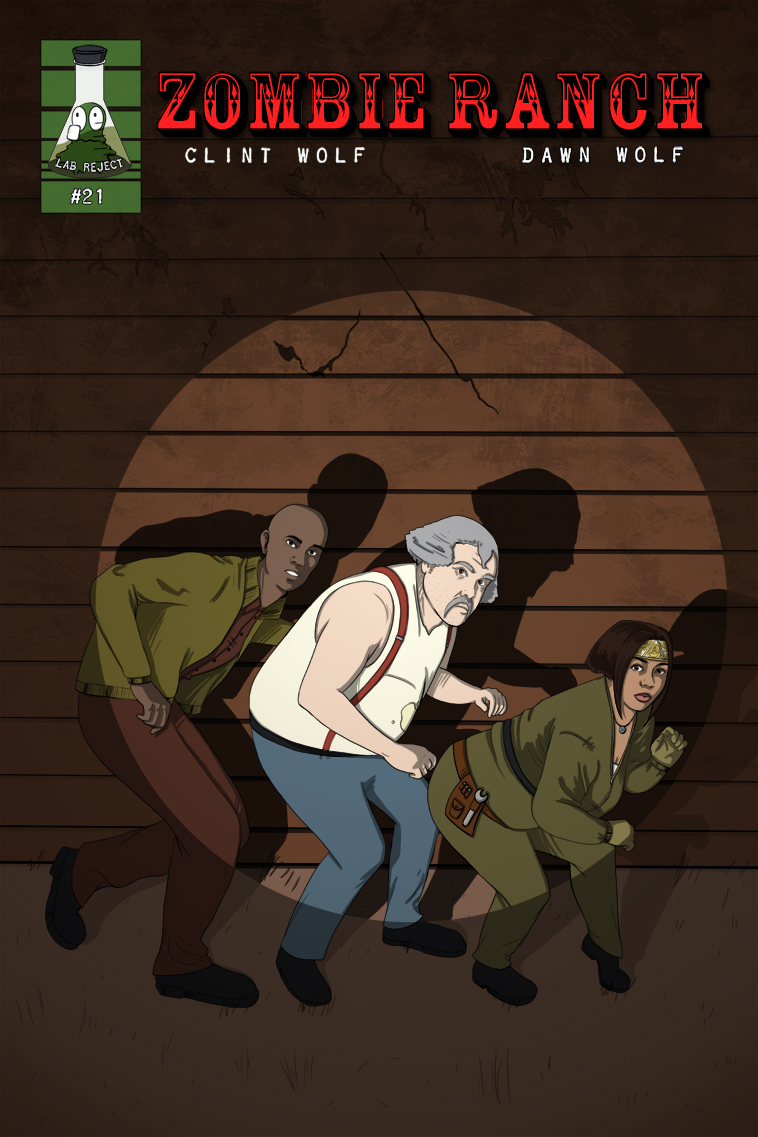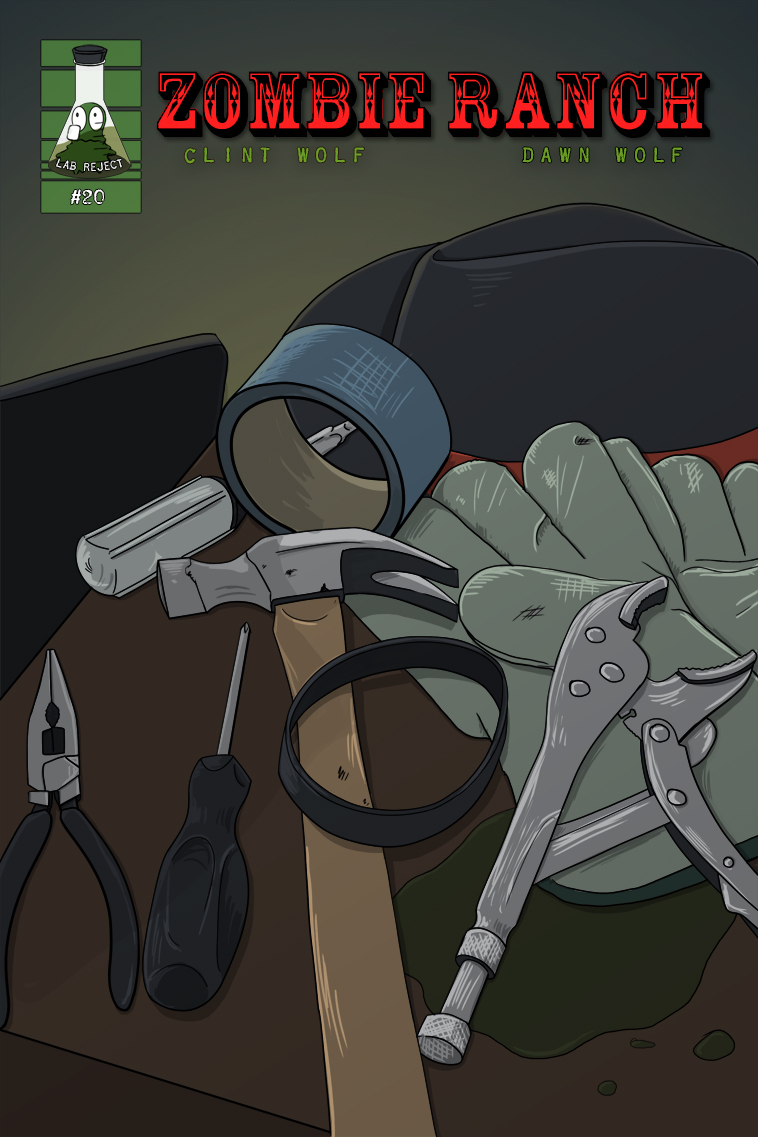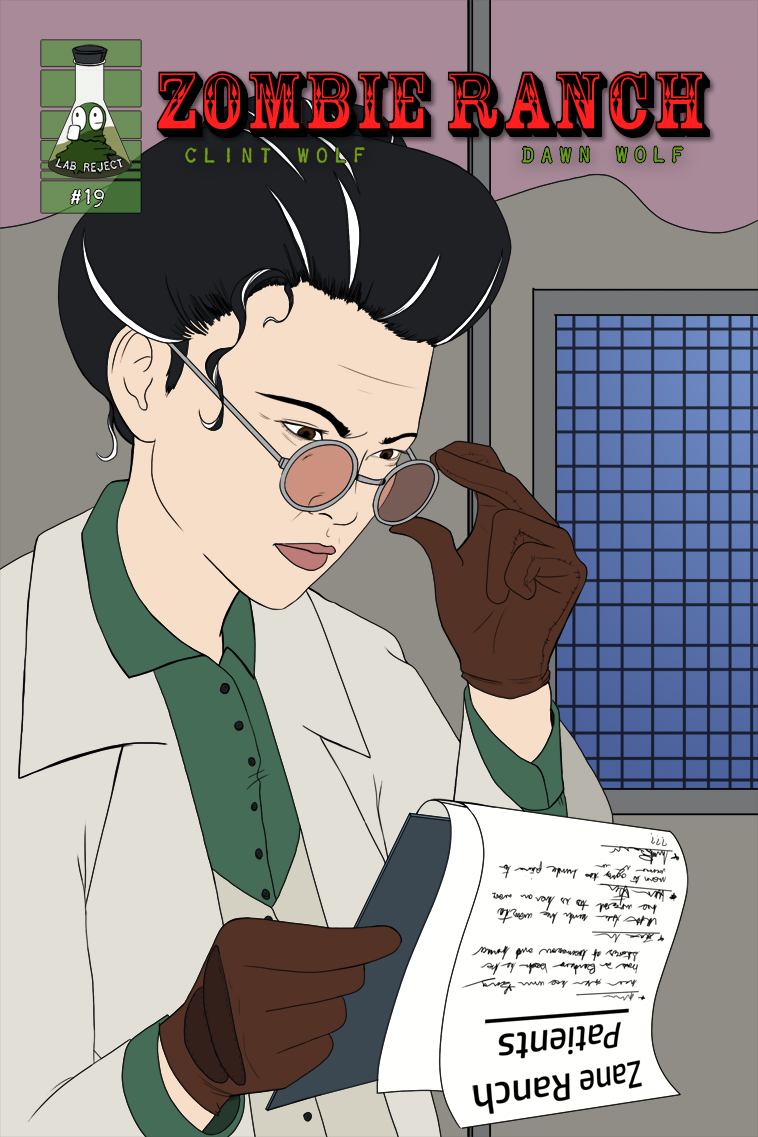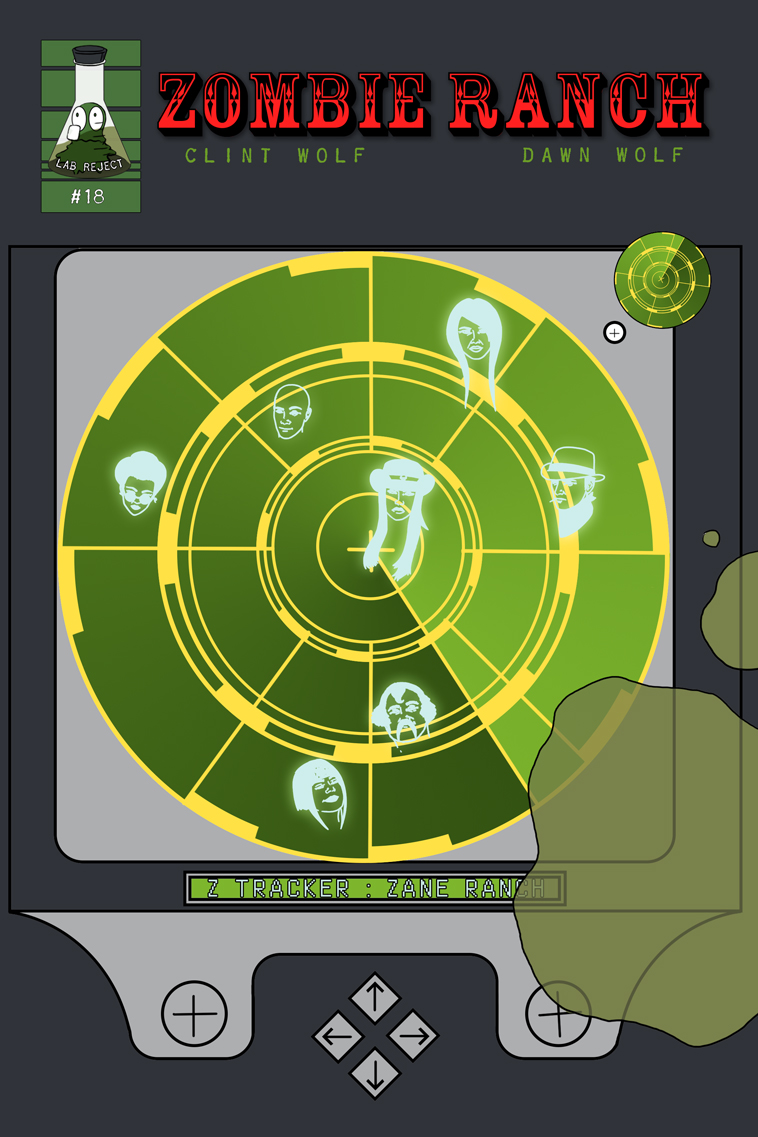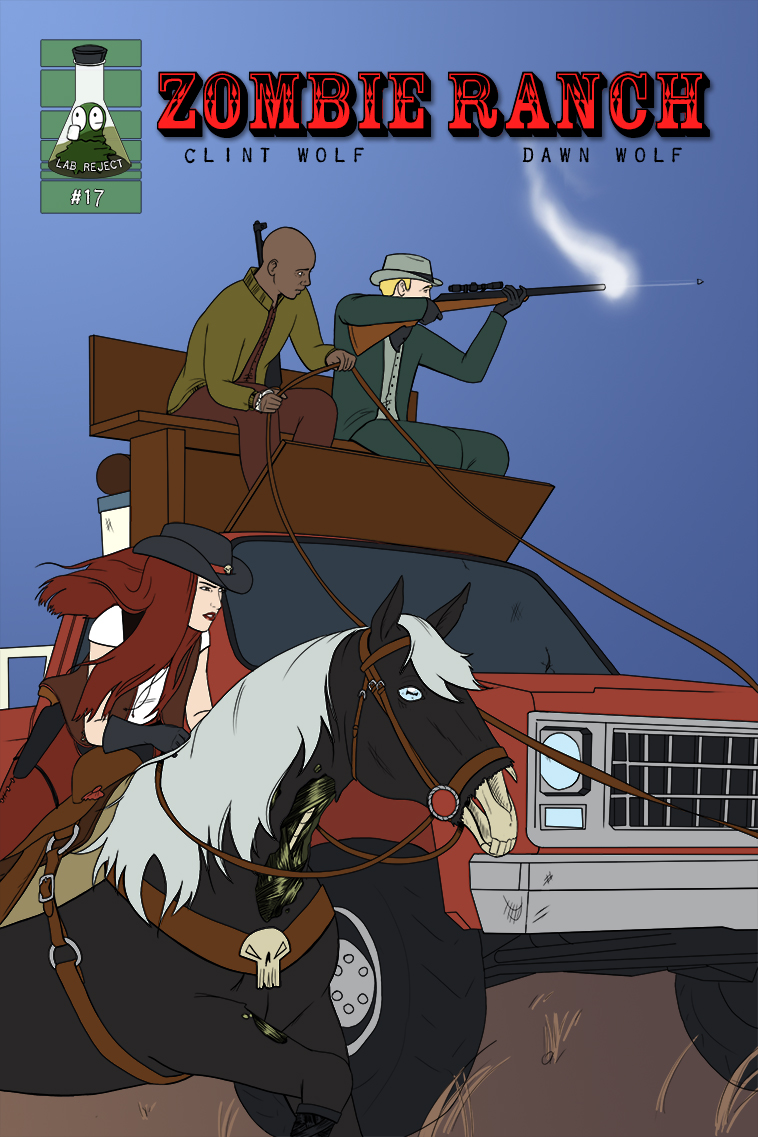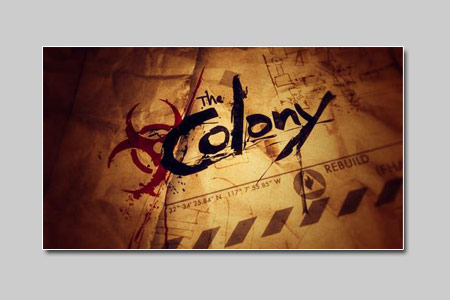 Right around the time we were starting up Zombie Ranch, Dawn and I became aware of a reality television show purporting to show how people might survive and thrive in the face of apocalypse. Not a zombie apocalypse, per se, but still presented as a global-scale disaster which would leave small groups of survivors isolated from outside contact, with minimal resources.
Despite being interested, we never got around to watching The Colony at that time. For one thing, our own scenario was one where the disaster happened years beforehand, instead of focusing on immediate aftermaths, but the main reason is that Dawn and I are just horrible at keeping track of television shows as they air, and as I recall at the time only a couple of the full episodes were available on the Discovery Channel website, with the rest being just partial clips. Tantalizing, perhaps, but ultimately just frustrating. I also wondered how feasible they could really pull off the idea of apocalyptic isolation while using a warehouse area near Downtown Los Angeles. Would sending “biker gangs” and other twists of fate at the survivors be compelling? Or just cheesy?
Three years later and the show has finally hit Netflix. We just finished watching the entirety of Season 1, and… yes, in my opinion, it was plenty compelling. The ‘volunteers’ (I guess maybe you can’t call them survivors for fear of comparison to that Other Reality Show) really seemed to buy into the reality of their situation, especially as the days wore on.
I underestimated just how isolating those all but abandoned areas between Downtown and the L.A. river can be… having a passing familiarity with them, I probably shouldn’t have. They’re industrial ghost towns smack in the midst of one of the biggest metropolitan areas in the world, which is a fascinating and sobering topic all in itself. I don’t know how much editing had to be done, but from a viewing perspective the illusions were maintained, with not even one single homeless person wandering through that wasn’t scripted by the producers to do so.
What really makes the show as well is the lack of competition in the concept. Yes, there is internal strife, especially as supplies dwindle and frustrations and tempers ebb and flow, but there is no motive for any of the volunteers to act against or undermine each other. There is no reward prize dangling at the end except the idea of survival and self-discovery. At the beginning there doesn’t even seem to be a set goal, with the producers eventually adapting to the colonists’ efforts to allow for a satisfying closure.
For that matter, the “challenges” are a far cry from those in most reality shows. There’s no host explaining what to do next; instead, it’s a mix of naturally occurring and scripted stimuli for the colonists to react to as they will. The first season starts with the group confined to an abandoned warehouse and scrapyard, with a few beginning supplies which quickly need to be supplemented. One of the early problems is one of water, and the desperation really hits home when they have to gather it from the L.A. River. I don’t even want to set *foot* in the L.A. River, especially at the portion they’re at, and these folks have to use it for sustenance? But they manage to quickly rig up a system to purify it to potability, and the ingenuity just keeps building from there. You will boggle at some of the ideas these people come up with, and you will boggle even more when they actually make those crazy ideas work. Well, at least I did.
And even with all that ingenuity, there’s always a sense of being one or two steps from disaster. If the curveballs don’t come from the environment, outside elements are introduced to keep the colonists on their toes. Two starving travelers come by to ask for food and water… do you turn them away? The route you got used to for scavenging is suddenly closed off… now what? Marauders threaten your supplies… how will you defend them?
I really shouldn’t go into much more for fear of spoilers. I know, I know, I’m the guy who contended that spoilers aren’t the end-all be-all of entertainment enjoyment, but I’ll admit, there’s a lot of events here that are probably best experienced in the same way the colonists must have experienced them.
It is a really good show, and not only that, I feel like I learned things from it, both on a technological and simply human standpoint. The Colony’s narrator often refers to it as “the experiment”. An experiment which, at the end of it all, shows just how resilient we can be.
Right around the time we were starting up Zombie Ranch, Dawn and I became aware of a reality television show purporting to show how people might survive and thrive in the face of apocalypse. Not a zombie apocalypse, per se, but still presented as a global-scale disaster which would leave small groups of survivors isolated from outside contact, with minimal resources.
Despite being interested, we never got around to watching The Colony at that time. For one thing, our own scenario was one where the disaster happened years beforehand, instead of focusing on immediate aftermaths, but the main reason is that Dawn and I are just horrible at keeping track of television shows as they air, and as I recall at the time only a couple of the full episodes were available on the Discovery Channel website, with the rest being just partial clips. Tantalizing, perhaps, but ultimately just frustrating. I also wondered how feasible they could really pull off the idea of apocalyptic isolation while using a warehouse area near Downtown Los Angeles. Would sending “biker gangs” and other twists of fate at the survivors be compelling? Or just cheesy?
Three years later and the show has finally hit Netflix. We just finished watching the entirety of Season 1, and… yes, in my opinion, it was plenty compelling. The ‘volunteers’ (I guess maybe you can’t call them survivors for fear of comparison to that Other Reality Show) really seemed to buy into the reality of their situation, especially as the days wore on.
I underestimated just how isolating those all but abandoned areas between Downtown and the L.A. river can be… having a passing familiarity with them, I probably shouldn’t have. They’re industrial ghost towns smack in the midst of one of the biggest metropolitan areas in the world, which is a fascinating and sobering topic all in itself. I don’t know how much editing had to be done, but from a viewing perspective the illusions were maintained, with not even one single homeless person wandering through that wasn’t scripted by the producers to do so.
What really makes the show as well is the lack of competition in the concept. Yes, there is internal strife, especially as supplies dwindle and frustrations and tempers ebb and flow, but there is no motive for any of the volunteers to act against or undermine each other. There is no reward prize dangling at the end except the idea of survival and self-discovery. At the beginning there doesn’t even seem to be a set goal, with the producers eventually adapting to the colonists’ efforts to allow for a satisfying closure.
For that matter, the “challenges” are a far cry from those in most reality shows. There’s no host explaining what to do next; instead, it’s a mix of naturally occurring and scripted stimuli for the colonists to react to as they will. The first season starts with the group confined to an abandoned warehouse and scrapyard, with a few beginning supplies which quickly need to be supplemented. One of the early problems is one of water, and the desperation really hits home when they have to gather it from the L.A. River. I don’t even want to set *foot* in the L.A. River, especially at the portion they’re at, and these folks have to use it for sustenance? But they manage to quickly rig up a system to purify it to potability, and the ingenuity just keeps building from there. You will boggle at some of the ideas these people come up with, and you will boggle even more when they actually make those crazy ideas work. Well, at least I did.
And even with all that ingenuity, there’s always a sense of being one or two steps from disaster. If the curveballs don’t come from the environment, outside elements are introduced to keep the colonists on their toes. Two starving travelers come by to ask for food and water… do you turn them away? The route you got used to for scavenging is suddenly closed off… now what? Marauders threaten your supplies… how will you defend them?
I really shouldn’t go into much more for fear of spoilers. I know, I know, I’m the guy who contended that spoilers aren’t the end-all be-all of entertainment enjoyment, but I’ll admit, there’s a lot of events here that are probably best experienced in the same way the colonists must have experienced them.
It is a really good show, and not only that, I feel like I learned things from it, both on a technological and simply human standpoint. The Colony’s narrator often refers to it as “the experiment”. An experiment which, at the end of it all, shows just how resilient we can be.
How 'bout them spook stories now, Chuck?









